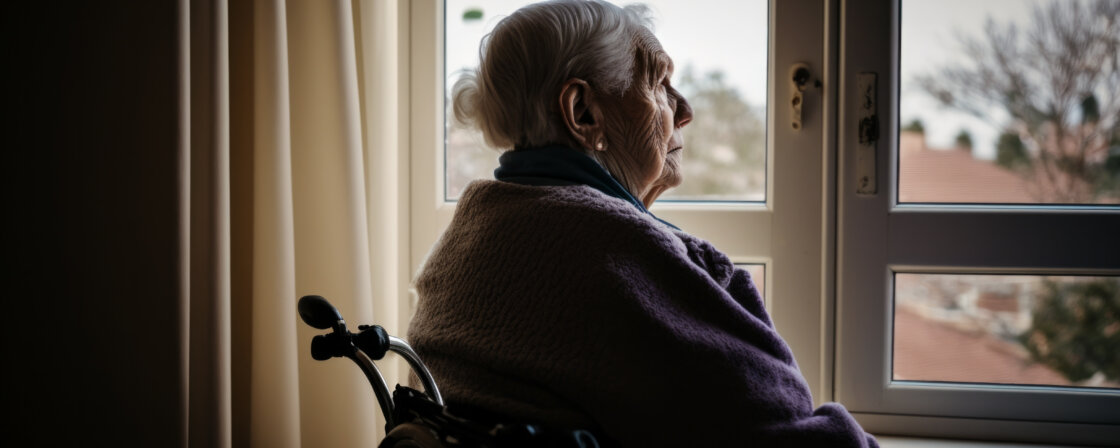What is a superdose and why it was created
The Superdose is a new social benefit that will gradually replace the four existing ones from October 2025: housing benefit, housing benefit, child benefit and living allowance. It will now be the only state social assistance benefit paid. The aim of the change is to simplify the previously fragmented system, reduce the administrative burden and better target assistance where it is really needed.
The Ministry of Labour and Social Affairs stresses that thanks to the unification, people no longer have to submit four applications or prove the same income repeatedly. Everything is contained in one benefit, the individual components of which (e.g. subsistence, housing, child bonus) are assessed by the authority in a single procedure. However, a major change is that entitlement is no longer assessed solely on income but also on total household assets. A so-called work bonus has also been introduced to encourage economic activity.
Critics point out that while the new system is simpler on paper, in practice it may be less affordable for some households. Just having two cars, a small investment property or higher savings is enough to lose eligibility. The so-called ‘normative housing costs’ on which benefits were previously based have also changed significantly. These limits have been lowered, affecting, for example, elderly people living alone or tenants in large cities.
The change is therefore not only a simplification but also a major reordering of the rules: aid is more precisely targeted but also more strictly conditional.
Are you solving a similar problem?
Do you need help with social benefits?
Getting to grips with the new system can be tricky. Our lawyers can help you get what you’re entitled to quickly and efficiently – in a clear and straightforward way.
More information
- When you order, you know what you will get and how much it will cost.
- We handle everything online or in person at one of our 6 offices.
- We handle 8 out of 10 requests within 2 working days.
- We have specialists for every field of law.
Who is entitled to the super allowance and how it is assessed
A household in an unfavourable social situation that meets a combination of income, asset and other statutory conditions will qualify for the super allowance. The system is stricter than in the past and, above all, more comprehensive – it is not enough to have a low income; assets, household composition or housing type are also examined.
Income up to 1.43 times the minimum subsistence level
The basic threshold for most components of the superannuation (e.g. the living allowance or the child bonus) is an income up to 1.43 times the household’s minimum subsistence level. Income includes:
- net wages and salaries, income from business (including secondary activities),
- benefits (e.g. parental allowance, maintenance, unemployment benefit),
- non-monetary income (e.g. benefits in kind from an employer),
- earnings, temporary jobs, agreements.
If a household falls within this threshold, it can be assessed under the simplified regime (no need to prove housing costs). If it exceeds it, it must already prove actual costs and undergo a so-called detailed investigation.
The state also takes household assets into account:
- Real estate: one residential property is allowed. A second property can be owned for a maximum of 3 years, e.g. from an inheritance.
- Cars: each adult is allowed to own one car. Exceptions apply for leasing, disabled persons, or cars used to care for a loved one.
- Savings and cash – the limit is CZK 200,000 for an individual, increased by CZK 50,000 for each additional household member (max CZK 400,000). Funds for retirement savings or building savings are not included.
Another important factor is the so-called adequacy of housing – a household cannot receive support if it lives in a building that is not approved for housing or if the costs would significantly exceed the normative values.
In practice, some claimants lose eligibility because of ‘trivialities’ – for example, co-ownership of a plot of land by grandparents, an extra older car in the garage, or cash saved for emergency expenses. Conversely, there are cases where a household with a low but stable income will not qualify because they exceed the income threshold by even a hundred pennies – typically because of a one-off wage, bonus or holiday job.
Tip for article
With the advent of the so-called super allowance, the entire system of state housing support has changed. Instead of the housing allowance and housing supplement, there is a new Housing component – one of the parts of the single state social assistance benefit. Who will qualify for it, what affects its amount and how to make a proper application? This is the subject of a separate article.
How the superdose is calculated and what all affects its amount
The calculation of the superannuation is based on a comprehensive assessment of income, costs, household composition, assets and other circumstances, and the system works with several formulas and tables. Although it is a single benefit, it is paid in individual components – for example, housing, subsistence, child and work bonuses.
The basis is a comparison of the household’s eligible costs (mainly housing and energy) with its net income. The resulting benefit is intended to ‘top up’ the difference between what the household has available and what the state considers to be the minimum subsistence needs. Note – it is not the real costs that are counted, but the so-called normative housing costs (i.e. the tabulated values according to the size of the municipality, number of people and type of housing), which were significantly reduced when the super-dividend was launched.
On top of this, the state has added flat-rate energy bills, regardless of actual consumption – which can be a problem for households in energy-intensive or older homes. For example, if a household heats with electricity or has a poorly insulated house, the “lump sum” may not be enough.
The amount of the levy is also affected:
- household size and composition
- type of housing (rented, housing association, own property)
- income in the reference period (three months backwards)
- assets of all household members
- and, more recently, work activity – for this the state grants a so-called work bonus, which increases the amount of the benefit for economically active persons (employed, self-employed or cooperating with the labour office)
Practical example:
Ms Iveta from Ústí nad Labem lives alone in a rented studio apartment. She used to receive a housing allowance of CZK 7,500, but after the introduction of the super benefit she received only CZK 4,300 – due to the reduction of the normative costs for her locality and the fact that she is not active in the labour market.
How and when to apply for a superdose
You can apply for the new state social assistance benefit, the super allowance, from 1 October 2025. If you previously received housing benefit, housing benefit, child benefit or living allowance, you must reapply for the super allowance by 31 December 2025. Failure to claim means an automatic end to your support – you won’t get the benefit from May 2026, even if you would otherwise be entitled to it.
There are three ways to apply:
- Electronically via the MoLSA portal (Jenda app) if you have a bank identity.
- In person at any contact point of the Labour Office.
- By post, by filling in the form and sending it to the relevant office.
A number of documents are required to accompany the application. They should include:
- Income of all household members for the relevant period (pay slips, employer’s certificates, bank statements, tax returns for self-employed persons)
- Housing costs (rental agreement, utility bills, proof of payments)
- Household composition (affidavits, birth certificates of children, proof of studies)
- Property details – e.g. cadastral extract, vehicle register, statement of accounts, balance certificate
- Consents of all adult members of the household to provide data
The exact list of documents required may vary slightly depending on the specific situation and the practice of individual authorities – for example, some ask for additional bank statements, school attendance certificates or a detailed breakdown of utility bills.
The advantage is that it is no longer necessary to submit four different applications – the superbatch unifies everything. The Office assesses the claim comprehensively and splits the benefit itself according to the individual components (e.g. housing benefit, child benefit, etc.).
What does the reality look like?
In the experience of November 2025, some authorities are already paying benefits, particularly to households that were automatically entitled on the basis of the September benefits. However, for most new claims, the procedure is still ongoing. The Jenda system reports intermittent outages and claimants complain of lengthy processing and lack of clarity of claims.
According to staff at the counselling centres and the Labour Office, the main obstacle is securing approvals and the lack of supporting documents from some household members. Cases where a single signature makes it impossible to process an application are no exception.
In some cases, benefits have been paid within 4 weeks, but the typical time remains more between 6 and 10 weeks. The Ministry of Labour and Social Affairs has not yet confirmed that the time limits have been reduced across the board to the promised one month. Therefore, if a benefit does not arrive, this does not mean a refusal – it is usually just the statutory time limit running. But claimants need to stay alert: the authorities often ask them to complete their documents, and if they do not respond, the procedure is suspended or rejected.
Who gets sick and what to do if the superdose is not enough
The Superdose is designed to consolidate state help and make the system clearer. But for some people, it’s more likely to cut from their wallets. Typically, individuals who live on their own in rented accommodation, particularly in big cities, will take the hit. They will lose thousands of crowns a month because of the new lower ‘norms’ – the amounts used to determine housing costs. In Prague, for example, this table amount has dropped from CZK 17 000 to CZK 10 500.
The change will also affect those who are not officially considered “vulnerable” – for example, single mothers on low incomes or seniors with their own homes, but which consume too much energy. Those who have savings “in the bank” but do not know how to “hide” them may also be negatively affected. The Superdividend now takes into account assets, not just income – and those with more than one car, another property or a higher cash reserve, for example, may be excluded from the scheme.
What to do if the benefit is not enough?
First and foremost, it’s important to document everything correctly and completely – a missing document can mean a lower benefit. If you still don’t fit the calculation, it is possible to turn to social advice centres, municipalities or non-profit organisations that help find other sources of help – for example, emergency immediate assistance. As a last resort, you can appeal against the decision of the Labour Office.
Summary
The Superlevy consolidates several former benefits into one and promises a simpler and clearer system of state support. However, eligibility is now means-tested as well as income-based, and the amount of assistance varies considerably according to the type of household, number of members or place of residence. Some people will be better off, while others will be worse off – especially single renters or people with savings. The key is to know how to apply correctly, what to document and where to go if the benefit is not enough.
Do I have to claim the super allowance even though I am already receiving the old benefits?
Yes, you need to reapply for the super allowance – even for continued assistance after April 2026.
Are assets taken into account when assessing a claim?
Yes, the authority now also checks assets – the number of cars, properties and the amount of savings.
How much can I get under the superdose?
The amount of the benefit depends on income, housing costs, type of household and place of residence – the exact amount can be found in the Ministry of Labour and Social Affairs’ indicative calculator.
What if the superdose is not enough for the cost of living?
You can go to a social counselling centre or ask for emergency help.




